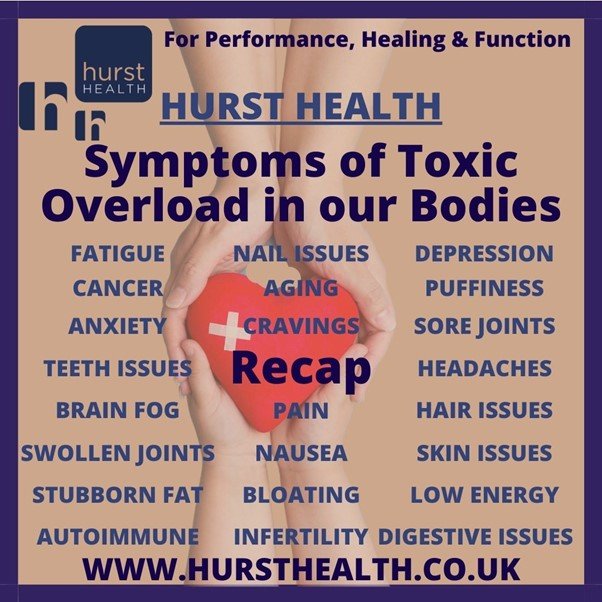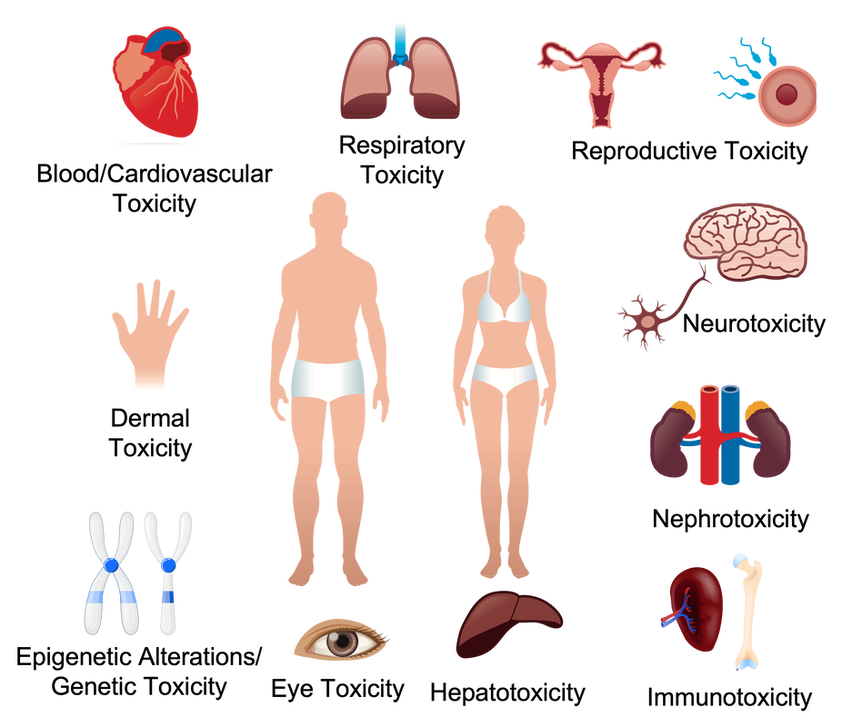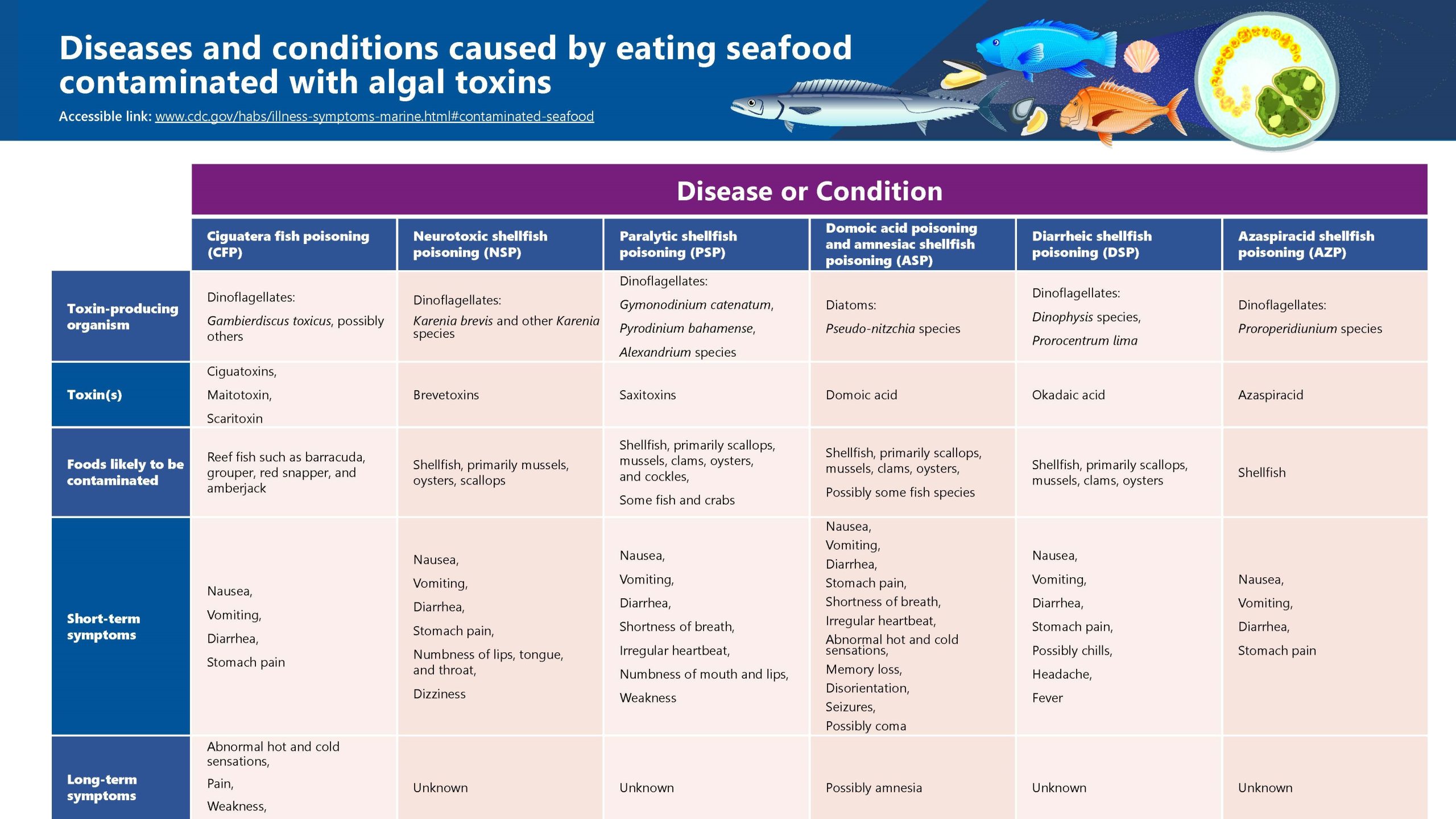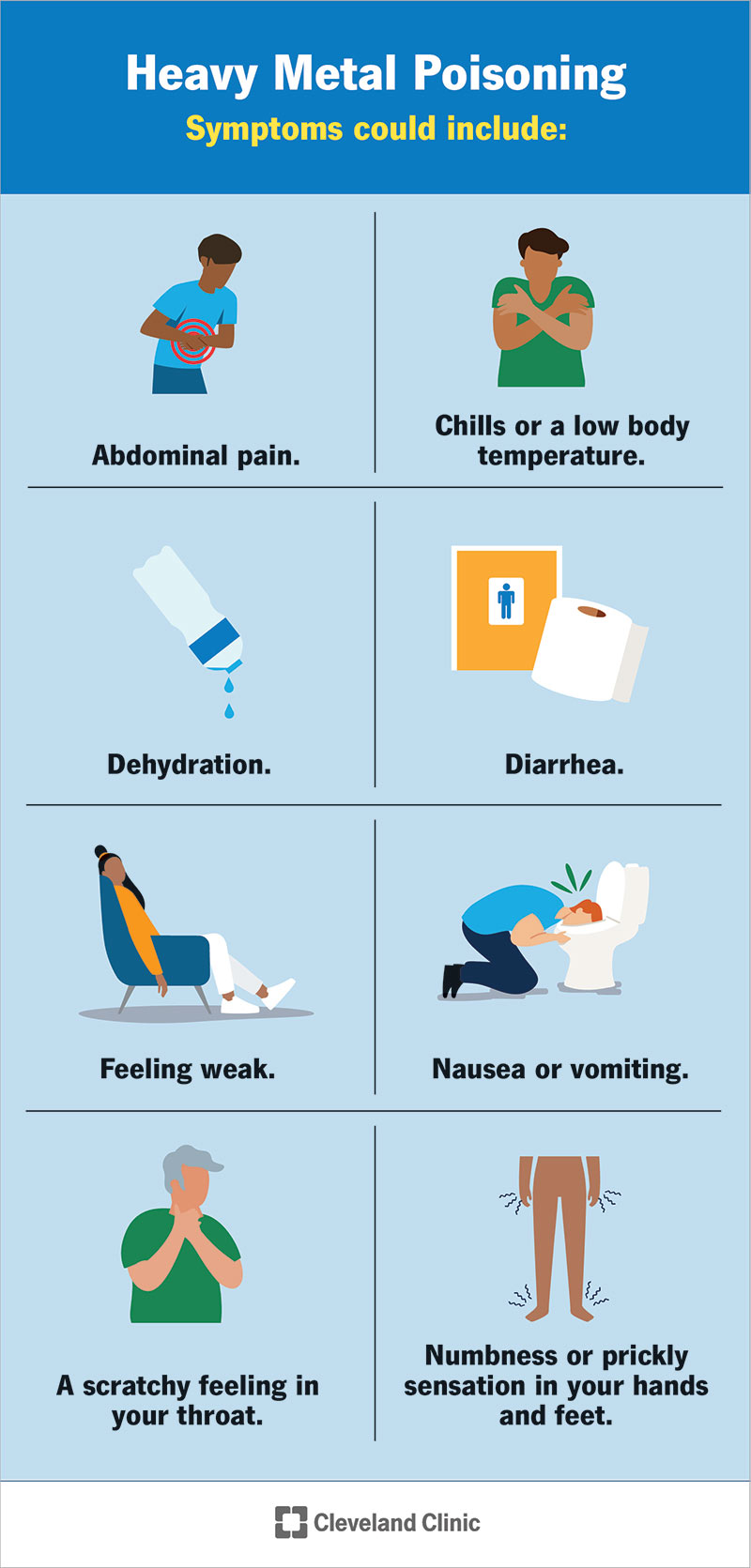What do toxins do to your body

Toxins: The insidious invaders that permeate our environment, lurking in our food, water, and air, pose a formidable threat to our well-being. Their insidious effects quietly wreak havoc in our bodies, leaving us vulnerable to a myriad of health concerns. This article delves into the sinister machinations of toxins – their insidious modes of action, the devastating consequences they inflict upon our health, and the alarmingly ubiquitous nature of these harmful substances. By uncovering the truth about toxins, we empower ourselves with knowledge to make informed choices and safeguard our health in the face of these unseen adversaries.
What Toxins Do to Your Body: A Comprehensive Overview
Toxins, whether from environmental sources, processed foods, or internal metabolic processes, can significantly impact your body's health and function. Their effects are diverse and depend on the specific toxin, the dose, and the individual's overall health. Generally, toxins disrupt the body's delicate balance, leading to a range of symptoms and long-term health problems. The body has natural detoxification mechanisms, but overwhelming these systems can lead to serious consequences. Understanding how toxins affect your body is crucial for implementing preventative strategies and addressing health concerns.
Cellular Damage and Dysfunction
Many toxins exert their harmful effects at the cellular level. They can damage cell membranes, interfering with nutrient uptake and waste removal. Some toxins directly attack cellular DNA, leading to mutations that may contribute to cancer. Others can disrupt cellular signaling pathways, causing impaired communication between cells and potentially leading to malfunctioning organs and systems. The accumulation of cellular damage over time can accelerate aging and contribute to chronic diseases.
Immune System Suppression
The immune system is crucial for protecting the body from harmful invaders. Toxins can weaken the immune response in several ways. Some toxins directly suppress immune cell activity, making you more susceptible to infections. Others can trigger chronic inflammation, overwhelming the immune system and potentially leading to autoimmune disorders. Furthermore, some toxins can even mimic the body's own molecules, leading to immune system confusion and autoimmunity.
Endocrine Disruption
The endocrine system regulates numerous bodily functions through hormones. Many toxins, known as endocrine disruptors, interfere with hormone production, transport, or action. These disruptors can mimic hormones, block hormone receptors, or alter hormone metabolism, leading to a wide range of adverse effects including infertility, developmental problems, and increased risk of certain cancers. The impact on hormonal balance can be especially harmful during pregnancy and childhood.
Nervous System Impairment
The nervous system is particularly vulnerable to the effects of toxins. Some toxins directly damage nerve cells, causing neurological disorders like impaired cognition, nerve pain, muscle weakness, and even paralysis. Other toxins interfere with neurotransmitter function, affecting mood, behavior, and cognitive processes. Exposure to high levels of certain toxins can result in severe neurological symptoms or even death.
Organ Damage and Disease
The effects of toxins are often manifested as damage to specific organs. Liver damage is common due to its role in detoxification. Kidney damage can occur from toxins overwhelming the kidneys' filtration capacity. Lung damage can be caused by inhaled toxins. Accumulation of toxins in other organs can lead to various health problems, depending on which organs are affected. Long-term exposure to toxins can increase the risk of chronic diseases such as heart disease, cancer, and Alzheimer's disease.
| Toxin Type | Source | Potential Effects on the Body |
|---|---|---|
| Heavy Metals (e.g., lead, mercury) | Industrial pollution, contaminated food and water | Neurological damage, kidney damage, developmental problems |
| Pesticides | Agriculture, pest control | Immune suppression, endocrine disruption, neurological effects |
| Plastics (e.g., BPA, phthalates) | Food packaging, plastic products | Endocrine disruption, reproductive problems, developmental issues |
| Air Pollutants | Vehicle emissions, industrial processes | Respiratory problems, cardiovascular disease, cancer |
| Mycotoxins | Mold, contaminated food | Immune suppression, liver damage, neurological effects |
https://youtube.com/watch?v=BewwzgZxsGE%26pp%3DygUKI2hpbW90b3hpYw%253D%253D
What are the symptoms of toxins in your body?
The symptoms of toxins in your body can vary widely depending on the type and amount of toxin, the route of exposure, and individual factors like age and overall health. There's no single, definitive list, as many symptoms can be attributed to various conditions. However, some common indicators that your body might be struggling to process toxins include fatigue, headaches, skin problems, digestive issues, and cognitive impairment. It's crucial to remember that experiencing one or even several of these symptoms doesn't automatically mean you have a toxin overload. A proper diagnosis requires medical evaluation.
Headaches and Migraines
Persistent headaches, especially migraines, can be a sign of toxin buildup. Toxins can irritate the nervous system, triggering inflammation and pain in the head. The severity and frequency of headaches can vary, but if they become increasingly frequent or intense, it's important to consult a doctor. This is particularly true if accompanied by other symptoms.
- Frequent, intense headaches
- Migraines with unusual symptoms
- Headaches unresponsive to over-the-counter pain relief
Fatigue and Low Energy
Chronic fatigue and unexplained low energy levels can indicate that your body is struggling to detoxify effectively. When your body is overwhelmed with toxins, it has to work harder to eliminate them, leading to reduced energy. This can manifest as constant tiredness, difficulty concentrating, and a lack of motivation even after adequate sleep.
- Persistent fatigue despite sufficient sleep
- Difficulty concentrating or focusing
- Feeling drained and lacking motivation
Skin Problems
The skin is the body's largest organ and plays a significant role in detoxification. When toxins accumulate, the skin may react with various issues. This can range from rashes and acne to more serious conditions like eczema or psoriasis. These skin problems often improve with effective detoxification strategies.
- Unexplained rashes or skin irritations
- Acne breakouts or worsening of existing acne
- Eczema, psoriasis, or other chronic skin conditions
Digestive Issues
Your digestive system plays a crucial role in eliminating waste and toxins. When overloaded, it can manifest in a variety of symptoms. Constipation, bloating, diarrhea, and stomach pain are common signs of digestive distress often associated with toxin buildup. This is because toxins can irritate the digestive tract lining.
- Chronic constipation or diarrhea
- Frequent bloating or abdominal discomfort
- Unexplained stomach pain or cramping
Cognitive Impairment
Brain fog, difficulty concentrating, memory problems, and mood swings can also be indicators of toxin accumulation. Toxins can interfere with brain function and neurotransmitter activity, impacting cognitive processes and mental well-being. If you experience these symptoms, especially if they worsen gradually, seeking medical advice is essential.
- Brain fog or difficulty concentrating
- Memory problems or forgetfulness
- Mood swings or irritability
What are 3 effects of toxins?

Toxins, depending on their type, dose, and route of exposure, can have a wide range of effects on the body. Three significant effects include cell damage, organ dysfunction, and immune system disruption. The severity of these effects varies greatly depending on numerous factors, including the individual's overall health and genetic predisposition.
Cellular Damage
Toxins can directly damage cells through various mechanisms. Some toxins disrupt cellular membranes, causing leakage and cell death (necrosis). Others interfere with cellular processes such as DNA replication or protein synthesis, leading to mutations or dysfunction. The accumulation of damaged cells can contribute to tissue damage and organ failure. The type of cellular damage depends heavily on the specific toxin involved.
- Membrane disruption: Toxins may create holes in the cell membrane, causing vital molecules to leak out and disrupting cellular homeostasis.
- DNA damage: Some toxins are mutagenic, causing mutations in the DNA that can lead to cancer or other diseases.
- Interference with protein synthesis: Toxins can inhibit the production of essential proteins, leading to cellular dysfunction.
Organ Dysfunction
The effects of toxins are often not limited to individual cells; they frequently manifest as organ dysfunction. Liver damage is a common consequence of exposure to hepatotoxic substances. Kidney failure can result from nephrotoxic compounds. Neurological effects, including impaired cognitive function and motor control, can stem from neurotoxins. The specific organ affected depends on the toxin's properties and its route of entry into the body.
- Hepatotoxicity: Damage to the liver, often leading to inflammation (hepatitis) or cirrhosis.
- Nephrotoxicity: Damage to the kidneys, potentially causing acute kidney injury or chronic kidney disease.
- Neurotoxicity: Damage to the nervous system, potentially affecting brain function, motor control, or sensory perception.
Immune System Disruption
Many toxins can suppress or otherwise compromise the immune system, making individuals more susceptible to infections and diseases. This can be due to direct damage to immune cells or indirect effects, such as alterations in cytokine production or immune signaling pathways. A weakened immune response can have severe consequences, particularly in individuals already compromised by other health conditions. Immunosuppression leaves the body vulnerable to various pathogens.
- Immune cell destruction: Toxins may directly kill immune cells like lymphocytes, macrophages, or neutrophils.
- Disrupted cytokine production: Alteration in the production of signaling molecules involved in immune responses.
- Increased susceptibility to infections: Impaired immune function leaves the body more vulnerable to pathogens.
Long-Term Health Effects
The impact of toxin exposure is not always immediate; many toxins cause chronic health problems that develop gradually over time. Chronic exposure to low doses of certain toxins can contribute to the development of a wide range of diseases, including cancer, autoimmune disorders, and neurological conditions. The latency period can be many years before symptoms appear, making it difficult to establish cause and effect.
- Chronic diseases: Long-term exposure to low levels of toxins can increase the risk of developing various chronic illnesses.
- Delayed onset of symptoms: Symptoms may not appear immediately after exposure and can develop years later.
- Difficulty in diagnosis: The delayed onset of symptoms can make it challenging to establish a clear link between toxin exposure and disease.
Individual Susceptibility
The effects of toxins vary significantly depending on factors such as age, genetic makeup, and overall health. Children and the elderly are often more vulnerable to the harmful effects of toxins. Individuals with pre-existing health conditions may also experience more severe effects. Genetic variations can influence how an individual metabolizes and responds to specific toxins. This means that the same dose of a toxin might have vastly different consequences in different people.
- Age: Children and the elderly are typically more sensitive to the toxic effects.
- Genetics: Genetic variations influence an individual's susceptibility to toxic substances.
- Pre-existing health conditions: Individuals with underlying health problems may experience more severe reactions.
What diseases do toxins cause?

What Diseases Do Toxins Cause?
Toxins, whether produced by biological organisms (like bacteria, fungi, plants, or animals) or synthesized chemically, can cause a wide range of diseases. The specific disease depends heavily on the type of toxin, the dose, the route of exposure (ingestion, inhalation, absorption through the skin), and the individual's susceptibility. Some toxins cause acute, immediate effects, while others have chronic, long-term consequences. Many diseases aren't solely caused by toxins but rather involve a complex interplay of factors where toxins play a significant role.
Neurological Diseases
Many toxins directly attack the nervous system, leading to various neurological disorders. These toxins can disrupt nerve impulse transmission, damage nerve cells (neurons), or interfere with neurotransmitter function. Symptoms can range from mild sensory disturbances to severe paralysis or even death. Exposure to heavy metals like lead and mercury, certain pesticides (organophosphates, carbamates), and neurotoxins produced by certain algae or shellfish are all examples.
- Neurodegenerative diseases: Long-term exposure to some toxins can contribute to the development of conditions like Parkinson's disease and Alzheimer's disease.
- Peripheral neuropathies: Damage to peripheral nerves can result in numbness, tingling, weakness, and pain in the extremities.
- Acute neurological syndromes: Some toxins cause rapid-onset neurological symptoms, such as seizures, coma, or respiratory failure.
Respiratory Diseases
Toxins can severely damage the respiratory system, causing a variety of illnesses. Inhalation of toxic gases, particulate matter, or airborne toxins can lead to acute or chronic respiratory problems. The severity depends on factors such as the concentration of the toxin, duration of exposure, and the individual's respiratory health. Air pollution, including industrial emissions, vehicle exhaust, and wildfire smoke, is a major source of respiratory toxins. Exposure to asbestos and certain workplace chemicals can also lead to serious respiratory conditions.
- Asthma: Air pollutants can trigger asthma attacks and worsen symptoms in individuals with asthma.
- Chronic Obstructive Pulmonary Disease (COPD): Long-term exposure to respiratory irritants contributes significantly to the development of COPD.
- Lung cancer: Many toxins are known carcinogens and increase the risk of lung cancer.
Cardiovascular Diseases
Several toxins can have detrimental effects on the cardiovascular system. Some toxins directly damage the heart muscle (myocardium), while others affect blood vessels, leading to hypertension, atherosclerosis, and other cardiovascular problems. Exposure to certain heavy metals (cadmium, arsenic), air pollutants (particulate matter, ozone), and certain environmental contaminants are associated with an increased risk of cardiovascular diseases. The mechanisms involved can be complex, including oxidative stress, inflammation, and impaired endothelial function.
- Coronary artery disease: Toxins can contribute to the formation of plaque in the coronary arteries, leading to reduced blood flow to the heart.
- High blood pressure (hypertension): Some toxins can directly increase blood pressure or damage blood vessels, contributing to hypertension.
- Heart failure: Damage to the heart muscle due to toxin exposure can lead to heart failure.
Liver Diseases
The liver plays a crucial role in detoxification, so it is particularly vulnerable to damage from toxins. Exposure to various toxins can lead to a range of liver diseases, from mild inflammation to severe liver failure. Alcohol abuse is a major cause of liver damage, but other toxins, such as certain medications, industrial chemicals, and mycotoxins (toxins produced by fungi), can also cause liver disease. Hepatotoxicity (liver toxicity) can manifest in various ways, depending on the type of toxin and the extent of exposure.
- Hepatitis: Several toxins can cause inflammation of the liver, leading to hepatitis.
- Cirrhosis: Chronic exposure to certain toxins can cause scarring and damage to the liver, resulting in cirrhosis.
- Liver failure: Severe liver damage can lead to liver failure, requiring a liver transplant.
Kidney Diseases
The kidneys are also crucial for filtering toxins from the blood. Exposure to various nephrotoxins (substances toxic to the kidneys) can damage the kidneys, leading to various renal disorders. Heavy metals (lead, mercury, cadmium), certain medications (NSAIDs, some antibiotics), and industrial chemicals can all cause kidney damage. The severity of kidney disease depends on the nature and extent of toxin exposure, as well as other factors, such as pre-existing kidney conditions.
- Acute kidney injury: Sudden damage to the kidneys can cause acute kidney injury, leading to decreased urine production and other complications.
- Chronic kidney disease: Long-term exposure to nephrotoxins can lead to chronic kidney disease, characterized by gradual loss of kidney function.
- Kidney failure: Severe kidney damage can lead to kidney failure, requiring dialysis or a kidney transplant.
What happens when toxins leave your body?

When toxins leave your body, several things can happen depending on the type and amount of toxin, as well as the individual's overall health. The body primarily uses several systems to eliminate toxins: the liver, kidneys, lungs, intestines, and skin. The process isn't always a noticeable event; often, detoxification happens gradually and without overt symptoms. However, in some cases, particularly with significant toxin exposure or underlying health issues, the process of toxin removal can be accompanied by noticeable changes.
Improved Organ Function
As toxins are removed, the organs responsible for filtration and detoxification, primarily the liver and kidneys, can function more efficiently. This can lead to a range of positive effects. Improved liver function may result in better metabolism of nutrients and medications, and reduced inflammation. Similarly, improved kidney function can lead to better blood pressure regulation and waste removal. This improved organ function is often subtle but contributes to overall well-being.
- Reduced inflammation throughout the body.
- Enhanced nutrient absorption from food.
- Improved energy levels and reduced fatigue.
Reduced Inflammation
Many toxins contribute to inflammation throughout the body. When these toxins are removed, inflammation often decreases. This reduction can manifest in various ways, depending on the location and nature of the inflammation. For example, reducing inflammation in the joints might lessen pain and stiffness. Decreased systemic inflammation can lead to improvements in overall health and a lower risk of chronic diseases. The anti-inflammatory response can be gradual, with noticeable improvements taking time.
- Less joint pain and stiffness.
- Improved skin conditions like acne or eczema.
- Reduced risk of chronic diseases such as heart disease and diabetes.
Increased Energy Levels
Toxins can drain energy levels by taxing the body's systems. As the body eliminates these toxins, it can free up resources and improve energy production. Individuals often report feeling more energetic and less fatigued after detoxification. This increase in energy is not always dramatic but can improve daily functioning and overall quality of life. The restoration of energy occurs as the body's systems are no longer burdened by the presence of toxins.
- Improved mental clarity and focus.
- Greater physical stamina and endurance.
- Reduced feelings of fatigue and lethargy.
Better Cognitive Function
Certain toxins can negatively impact brain function, leading to difficulties with concentration, memory, and mood. As toxins are removed, cognitive function often improves. This improvement might be subtle or dramatic, depending on the nature and severity of the toxin exposure. Enhanced cognitive function can result in better memory, sharper focus, and improved mood.
- Improved memory and recall.
- Enhanced concentration and focus.
- Better mood regulation and reduced feelings of anxiety or depression.
Improved Immune System Function
The immune system is constantly working to protect the body from harmful substances, including toxins. When the body is burdened by a high load of toxins, the immune system may be weakened, increasing susceptibility to illness. The removal of toxins can strengthen the immune system, enabling it to function more effectively. A stronger immune system leads to fewer infections and a quicker recovery from illness.
- Reduced frequency of infections.
- Faster recovery from illness.
- Improved overall resistance to disease.
What are toxins, and how do they enter my body?
Toxins are substances that are harmful to the body. They can be naturally occurring, such as those produced by certain plants or animals, or they can be man-made, like pesticides, industrial chemicals, and certain preservatives found in food. The ways in which toxins enter the body are numerous and varied. Ingestion is a common route, where toxins are swallowed through contaminated food or drink. Inhalation exposes the body to toxins present in the air, such as pollutants from vehicle exhaust or industrial emissions. Dermal absorption allows toxins to penetrate the skin, which can occur through direct contact with contaminated surfaces or substances. Injection, while less common for everyday exposure, can introduce toxins directly into the bloodstream through needles or insect bites. Finally, placental transfer can expose a developing fetus to toxins present in the mother's system. The amount of toxin needed to cause harm is also crucial. A small amount of a relatively harmless substance may not have an effect, whereas a larger amount, or accumulation over time, could cause significant issues. The body's ability to process and eliminate toxins varies depending on individual factors like genetics, overall health, and exposure level. Understanding the pathways through which toxins enter the body helps in implementing preventative measures, like reducing exposure to environmental pollutants, consuming organic produce, and practicing good hygiene.
What are the short-term effects of toxin exposure?
The short-term effects of toxin exposure vary widely depending on the type and amount of toxin, as well as the individual's sensitivity. Mild effects might include headaches, nausea, vomiting, diarrhea, skin irritation, or allergic reactions. More severe, immediate effects can involve difficulty breathing, dizziness, disorientation, muscle weakness, or even seizures, depending on the severity of the exposure. For instance, exposure to high levels of carbon monoxide can lead to immediate breathing problems and even death. Similarly, ingestion of certain poisonous plants can cause rapid gastrointestinal distress. Some toxins, even at low doses, can trigger acute allergic reactions, like anaphylaxis, potentially leading to life-threatening complications. It's crucial to remember that the short-term effects can be a precursor to long-term health issues if exposure continues or the body is unable to effectively detoxify. The intensity of short-term effects is also influenced by factors such as pre-existing health conditions and the route of exposure. If you suspect toxin exposure, seeking medical attention is paramount, as prompt intervention can significantly impact the outcome.
What are the long-term effects of toxin exposure?
Long-term exposure to toxins can have devastating consequences on overall health. Chronic exposure can contribute to the development of many serious diseases, including certain types of cancer, neurological disorders like Alzheimer's disease and Parkinson's disease, and various autoimmune diseases. Reproductive problems, both in men and women, are another major concern. Toxins can interfere with hormonal balance, leading to issues with fertility and pregnancy complications. Developmental problems in children, whose bodies are still developing, are also a significant risk from long-term exposure. Furthermore, accumulation of toxins over time can lead to a general decline in overall health, including chronic fatigue, weakened immune system, and increased susceptibility to infections. The specific long-term effects depend heavily on the type of toxin, the duration of exposure, and the individual's vulnerability. Many long-term effects manifest slowly over time, making it challenging to establish direct links between toxin exposure and the subsequent health problems. Consequently, preventative measures are paramount, focusing on minimizing exposure to harmful toxins and supporting the body’s natural detoxification processes.
How can I reduce my exposure to toxins?
Reducing your exposure to toxins requires a multi-pronged approach encompassing various aspects of your lifestyle. One crucial step is to improve air quality in your home and surroundings. This includes using air purifiers, reducing reliance on harsh cleaning products, opting for natural ventilation, and minimizing exposure to secondhand smoke. Dietary changes are also essential. Prioritizing organic produce reduces exposure to pesticides and herbicides. Choosing whole, unprocessed foods minimizes exposure to additives and preservatives. Staying hydrated helps the body flush out toxins more effectively. Reducing consumption of processed foods, sugary drinks and excessive alcohol is also vital. Paying attention to personal care products is another important step; choosing products labeled as “organic”, “natural,” or free from harmful chemicals, can significantly reduce your exposure to toxins absorbed through the skin. Being mindful of your environment is critical. Avoiding contaminated areas, wearing protective gear during activities that involve exposure to chemicals or pollutants, and regularly cleaning your home thoroughly are crucial preventative steps. Finally, supporting your body's natural detoxification processes through adequate sleep, regular exercise, stress management techniques, and possibly incorporating specific supplements after consultation with a healthcare professional, plays a significant role in eliminating toxins.

Deja una respuesta